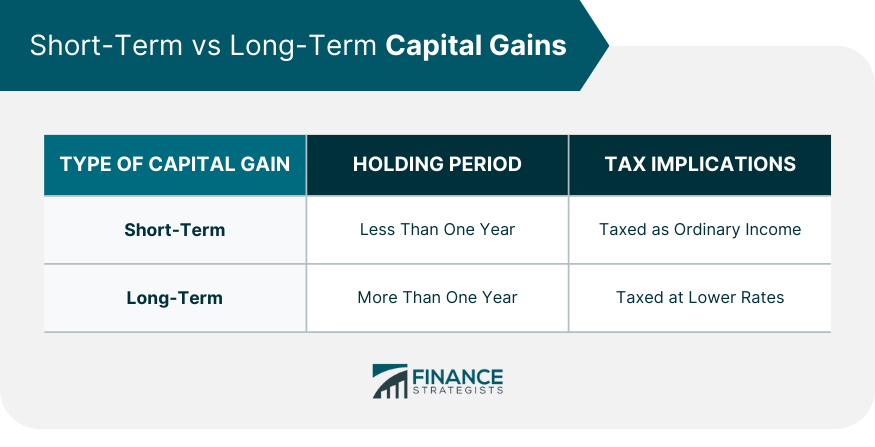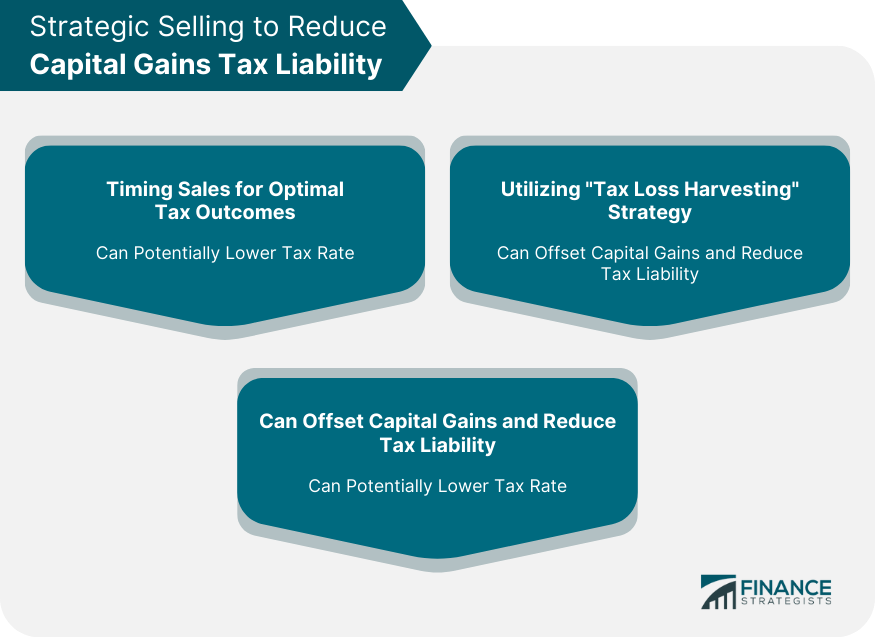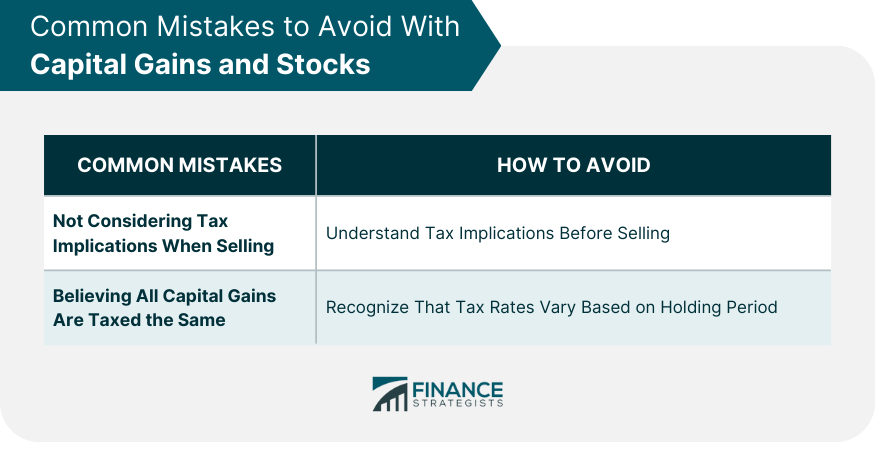Capital gains on stocks are essentially the profits that investors make when they sell a stock for more than they bought it. These gains are the payoff for the risks taken by investors when they enter the stock market. They are classified as either short-term or long-term, based on the duration the stocks were held, a concept that carries significant tax implications. Short-term capital gains are those earned from selling stocks held for one year or less. These gains are typically taxed as ordinary income. On the other hand, long-term capital gains arise from stocks held for more than a year before selling. The tax rates for these gains are generally lower, often making them more desirable for investors. Understanding this difference is vital for investors who are looking to strategically reduce their tax liabilities. When buying stocks, potential for capital gains is a major consideration. Factors such as the company's performance, market conditions, and timing can influence the potential for profit. It's about looking beyond the present moment and projecting the potential growth of a company and, in turn, its stocks. Selling stocks is where capital gains come into play. If the selling price exceeds the purchase price, a capital gain is realized. Conversely, if the selling price is less than the purchase price, a capital loss occurs, which can be used to offset capital gains and reduce tax liability. Thus, selling doesn't always signify the end of the investment process; it's an opportunity to analyze outcomes, learn, and make better future investment decisions. Capital gains are considered taxable income and, as such, they're subject to taxation. However, the rate at which these gains are taxed differs depending on whether they are short-term or long-term capital gains. Short-term gains are typically taxed at your ordinary income tax rate, while long-term gains benefit from lower tax rates. This difference in tax rates encourages long-term investment in the stock market. It's worth noting that while federal tax rates on capital gains are standardized, state taxes can vary. Some states levy no tax on capital gains, while others may impose a significant tax. Understanding your state's tax laws can greatly impact your financial planning. It's another level of complexity that underscores the importance of local knowledge when planning for capital gains taxes. Selling stocks at the right time can significantly impact your tax liability. For example, holding onto a stock for more than a year can shift your gains from short-term to long-term, potentially lowering your tax rate. Therefore, patience and foresight often go hand in hand when it comes to smart investing. Tax loss harvesting involves selling stocks that have declined in value to offset the capital gains earned on other stocks. This can be a strategic way to reduce overall tax liability. It's a process that involves a thorough analysis of your portfolio and a knack for turning potential losses into strategic advantages. The holding period of a stock - that is, the amount of time it's held before selling - can influence its tax implications. A longer holding period could transition your gains from short-term to long-term, potentially leading to lower tax rates. Thus, it's essential to consider your holding periods as an active part of your investment strategy. Capital gains, and the taxes associated with them, can affect the value of your retirement savings. Without proper planning, taxes on these gains could erode your savings, leaving you with less than anticipated for your retirement years. It's another reminder that the actions you take today can have lasting impacts on your financial future. Certain types of retirement accounts can offer strategic benefits when it comes to capital gains. For example, Roth IRA accounts allow for tax-free withdrawals in retirement, which can provide a way to avoid paying capital gains taxes on stocks held within the account. It's a feature that adds another layer of strategic potential for savvy investors. When you sell a stock for a profit, you incur capital gains, which are subject to tax. However, the rate of tax you will pay on those gains can significantly impact your net profit. If you sell without considering these tax implications, you may end up with less profit than you anticipated. To avoid this mistake, before you sell a stock, calculate the potential tax on the gains you would make. You can do this by identifying your tax bracket and the relevant capital gains tax rate. Depending on the length of time you've held the stock, you may qualify for long-term capital gains tax rates, which are typically lower than short-term rates. Not all capital gains are taxed equally. The amount of tax you owe depends on whether your capital gain is considered short-term or long-term. To avoid this common mistake, it's essential to understand the difference between short-term and long-term capital gains and their respective tax rates. Keep careful records of when you purchase and sell stocks, and consider holding onto investments for over a year to take advantage of the lower tax rate on long-term capital gains. It may also be beneficial to consult with a tax professional to make the most informed decisions regarding selling and buying investments. Capital gains on stocks are profits earned from the sale of stocks that can significantly impact your financial planning, with the tax implications being dependent on whether they are short-term or long-term gains. Strategic selling and carefully considering the timing of your sales can substantially reduce your tax liability. Meanwhile, understanding state-specific tax laws can add an extra layer of complexity, underscoring the importance of informed decision-making in investment strategy. Furthermore, capital gains can impact the value of retirement savings, necessitating meticulous planning to prevent erosion of future wealth. However, common mistakes like not considering tax implications before selling, or assuming all capital gains are taxed the same, can lead to lesser profits. Awareness and active management of your investments, coupled with a thorough understanding of tax laws, can help maximize your returns and financial well-being. What Constitutes Capital Gains on Stocks

Impact of Buying and Selling Stocks
Process of Buying Stocks
Selling Stocks: The Genesis of Capital Gains
Tax Implications of Capital Gains on Stocks
How Capital Gains on Stocks Are Taxed
State-By-State Variation in Capital Gains Tax
Strategic Selling to Reduce Capital Gains Tax Liability
Timing Sales for Optimal Tax Outcomes
Utilizing "Tax Loss Harvesting" Strategy
Considering Holding Periods in Tax Planning

Role of Capital Gains in Retirement Planning
Impact on Retirement Savings
Capital Gains Strategies in Retirement Accounts
Common Mistakes to Avoid With Capital Gains and Stocks
Not Considering Tax Implications When Selling
Believing All Capital Gains Are Taxed the Same

Bottom Line
Understanding Capital Gains on Stocks FAQs
Capital gains on stocks are the profits made when a stock is sold for more than its purchase price. They're categorized as either short-term (held for less than a year) or long-term (held for over a year), each having different tax implications.
Short-term capital gains are from stocks held for less than a year and are usually taxed as ordinary income. Long-term capital gains are from stocks held for more than a year and are usually taxed at lower rates.
Reducing capital gains tax liability can be achieved through strategic selling. Timing your sales to transition gains from short-term to long-term or using the "tax loss harvesting" strategy can significantly reduce tax liability.
Capital gains and their associated taxes can impact the value of retirement savings. Certain retirement accounts, like Roth IRAs, offer strategies to avoid paying capital gains taxes on stocks held within the account.
Common mistakes include failing to consider the tax implications of capital gains when selling stocks and mistakenly believing that all capital gains are taxed at the same rate. These can be avoided with proper understanding and strategic planning.
True Tamplin is a published author, public speaker, CEO of UpDigital, and founder of Finance Strategists.
True is a Certified Educator in Personal Finance (CEPF®), author of The Handy Financial Ratios Guide, a member of the Society for Advancing Business Editing and Writing, contributes to his financial education site, Finance Strategists, and has spoken to various financial communities such as the CFA Institute, as well as university students like his Alma mater, Biola University, where he received a bachelor of science in business and data analytics.
To learn more about True, visit his personal website or view his author profiles on Amazon, Nasdaq and Forbes.











